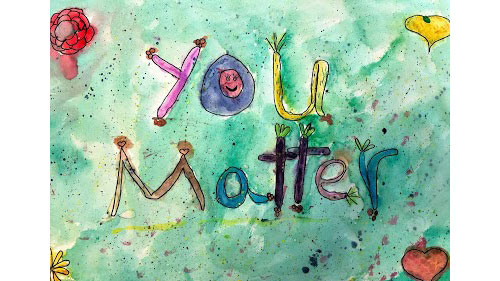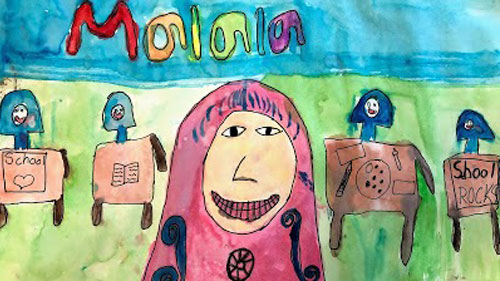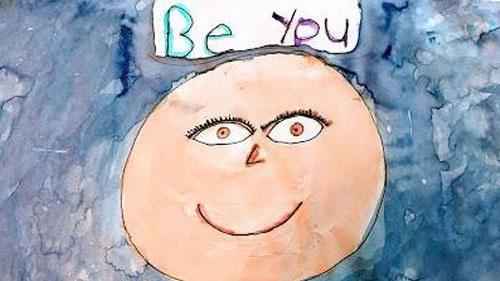In-Home Learning: Poetry, Queerness and Childhood Acceptance

Welcoming Schools Wednesdays: Activities and Resources for Inclusive Learning at Home
Each week while most students are out of school due to COVID-19, HRC Foundation’s Welcoming Schools will offer a book and a related activity adapted from our teacher lesson plans for parents to use with children at home. Our featured books will focus on Welcoming Schools themes: embracing all families, being an ally and respecting differences inclusive of LGBTQ identities. Don’t have the book? Don’t worry! We will provide a link to online readings to each book.
Week 2: Join Us As We Celebrate National Poetry Month!
Post submitted by: William Whitmire, HRC Communications Coordinator
This week, HRC Foundation’s Welcoming Schools program is excited to celebrate National Poetry Month. Founded in 1996 by the Academy of American Poets, National Poetry Month is the largest literary celebration in the world with schools, poets and communities coming together to celebrate poetry’s essential place in our lives.
Poetry offers people the ability to express how they feel, who they are and what they aspire to be. As acclaimed LGBTQ poet and advocate Audre Lorde wrote, “My poetry comes from the intersection of me and my world.”
We’re excited to feature some of our favorite poems and artwork created by third graders using the Welcoming Schools “Social Justice Acrostic Poem” lesson plan.
No Matter What by tw

no matter what you look like, you matter.
no matter who you are, you can make a difference,
the world matters.
you can make a really awesome world.
Malala by NC

Maker of schools
Awesome at speaking to millions of people
Lover of education
Amazing at school
Lots of education
And that is the end of the poem MALALA
Be You by HT

Be you,
be what you love,
Be you,
be bold,
be bright,
Shine in the light.
Activity: Make Your Own Acrostic Poem and Artwork!
An acrostic poem is a poem where certain letters in each line spell out a word or phrase. In this activity, we’ll be using the first letter of each line.
And remember — a poem is just words that you put together to show how you feel, or create something fun and new with your imagination. It doesn’t have to be any particular form or way.
- Ask your child to help you come up with a list of words or phrases on social justice movements and important issues that they care about. Examples might include: Black Lives Matter, respect all languages, animal rights, climate change, migration is beautiful, LGBTQ rights, water is life, disability rights, or March for Our Lives…
- Once you come up with your list, ask your child to pick a word or phrase they want to make a poem about.
- Working with colored pencils or markers have your child write a final version of their poem using different colors and different sizes of writing for each word..
- Once your child has written their poem, they can make a drawing to illustrate it.
- Proudly display the poem and art on your fridge! And share with HRC on social media! Tag @HRC on Twitter and @HumanRightsCampaign on Instagram.
To find the Welcoming Schools lesson plan featuring social justice poems, check out Welcoming Schools family lessons. To find great books about families, check out these family book lists.
HRC Foundation’s Welcoming Schools is the nation’s premier professional development program providing training and resources such as book lists and lesson plans to elementary school educators to embrace all families, create LGBTQ and gender-inclusive schools, prevent bias-based bullying, and support transgender and non-binary students.









